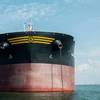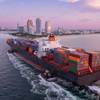In the European Shipowners’ seminar on CO2 reductions in the shipping industry one message was clear: in order to achieve CO2 reductions across the world merchant fleet, a combination of different measures is needed.
“In our seminar this week, we discussed with our stakeholders and European decision-makers different measures that enable to minimise the environmental impact of the shipping sector. In one analysis, the measures were divided in categories including the Technical and operational measures, Alternative fuels and Logistics related to the speed management of a vessel”, explained Tor Christian Sletner, the Chairman of European Community Shipowners’ Associations (ECSA)’s Air Emissions Working Group and Director, Head of Environment of the Norwegian Shipowners’ Association.
Following the International Maritime Organisation’s (IMO) latest meeting of the Marine Environment Protection Committee (MEPC71) and in view of the second meeting of the intersessional working group on reduction of GHG from ships in October 2017, European Shipowners this week organised the seminar on CO2 reduction in the shipping industry.
In the event, shipowners presented their initiatives followed by a debate with stakeholders, including the Commission, maritime attachees, European Parliament’s representatives and NGOs such as Transport and Environment.
“We certainly aim to promote ambitious short, mid and long term global measures in line with IMO MEPC71 roadmap for the CO2 reductions from international shipping, and the Paris COP21 Agreement on climate change. We feel that the shipping industry is fully engaged in advancing the emission reduction agenda. We call for the EU Member States to proactively engage IMO’s global members that IMO continues to seriously address CO2 reduction for ships and adopts an IMO CO2 strategy as soon as possible, as a global solution is what our industry indeed needs”, concluded Sletner.















